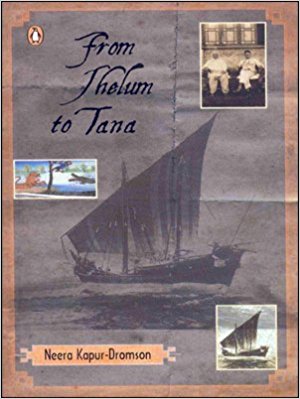In 1898, when the sun never set on the British Empire, Kirparam, young and penniless, left his village on the Jhelum to end up, almost accidentally, in Kenya. (Tana is a river in Kenya.) There were thousands of men like him in India in those days, desperate to get away from a land ravaged by British misrule, and ending up as coolies in the colonies, Trinidad, Fiji, Malaya, Mauritius, South Africa, Kenya . . ., if they did not die en route from drowning, dysentery, plague, starvation, or man’s inhumanity to man. Kirparam did not die, though he came close to being eaten alive by a lion. (The lion chose the next coolie.) Kirparam became a dukawala, petty trader, and eventually, armed with only his breath of vision and true grit—he once drove his lorry a hundred miles in reverse gear, the only gear that worked, through utterly inhospitable terrain—a rich businessman in Kenya.
December 2007, volume 31, No 12

